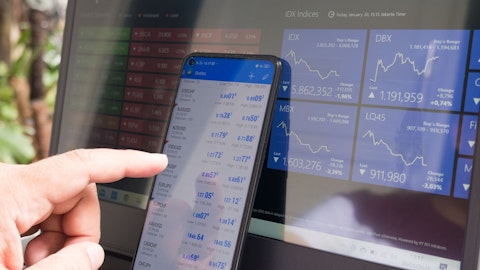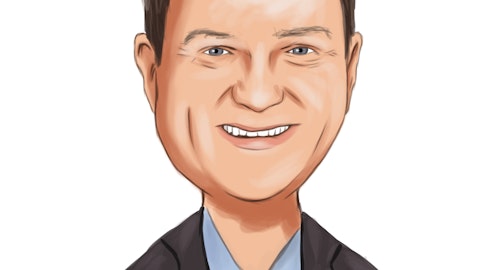And again, I’m not 100% sure I can tell you kind of some of these changes in that kind of more revealed here. Maybe it’s a little bit related to some of the — again, the property changes in that where folks can go. But overall, we took care of it here this quarter and nothing here really to note more than that.
Duane Sanders: Yes. This is Duane. Only one thought beyond that. I think it’s important to recognize that in that space from a litigation perspective, not all litigation is created equal. And a lot of times there’s, what I would prefer or call, frivolous or meritless type litigation, but you still have an obligation to defend. And so to Jim’s point, you probably don’t see a lot on the severity piece and it’s more on the defense side. And we were just truing that up, making sure that we’re in a position to handle those as they come through.
Charles Peters: Got it. Last question just is going to pivot to the catastrophe reinsurance renewals. It’s obviously pretty topical in the industry. And maybe you could — I was looking at the Slide 19, where you talk about your program. It doesn’t look like your retention on cat ex a loss change, but you did drop the ag program. Maybe you can just give us some color on what’s going on there.
James McKinney: Yes. No. Thanks, Greg. Jim again. big picture-wise, obviously, I think everyone’s aware of kind of the trends in the reinsurance market, obviously, with inflation and other elements and some of the uncertainties that have gone on there. Over the last couple of years, we had been close to essentially where we were breakeven from a crossover perspective, from a pricing . Again, we haven’t had a claim or used anything since like 2018. And so when you think about that relative to kind of the increased pricing that was out there today, it’s just no longer penciled both with the shrinking book and that we have in the property or the diversification that we’ve added with inside that book at this stage from an economic perspective, just to maintain it.
So again, kind of the net historical value to us was a couple of million dollars, again, once you include kind of capital considerations of this. It would have been $3 million, $4 million if you kind of think about it the other way. Not a big element in terms of the total change to us. But we — our framework and that have us make sure that we’re always solving for what we think is the best answer for our shareholders and our stakeholders. And with the changes that are inside the market, we updated kind of our program thoughts accordingly.
Operator: Our next question is from Brian Meredith, UBS.
Brian Meredith: A couple of them for here. Just a quick clarification. When you say profitability in Specialty P&C, do you mean Specialty Commercial and Specialty Personal will both be profitable underwriting wise in the second half of the year or just in total?
Joseph Lacher: Yes. In those comments, Brian referencing the segment in total.
Brian Meredith: Got you. Because Specialty Commercial is already profitable. So I got you. Okay. And then the second question on that — got you. Got you. And then on that, I’m just curious, what is your kind of loss trend assumption in making that type of a statement. Are you assuming that we’re going to continue at these double-digit levels that we’re seeing right now? Are you assuming it goes down to single digits? What’s your assumption?





